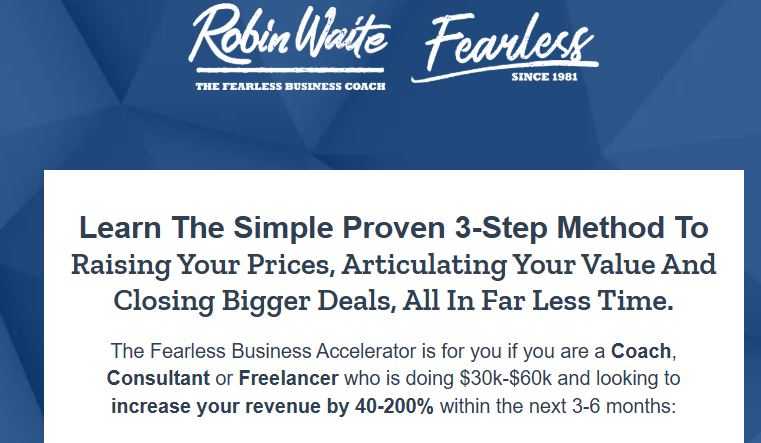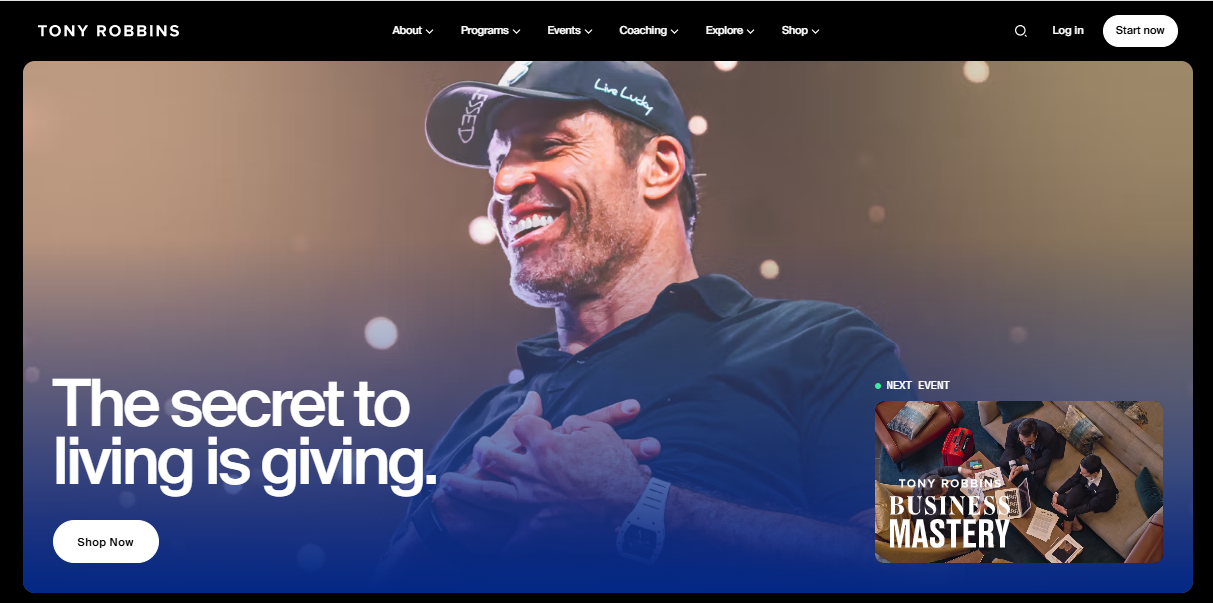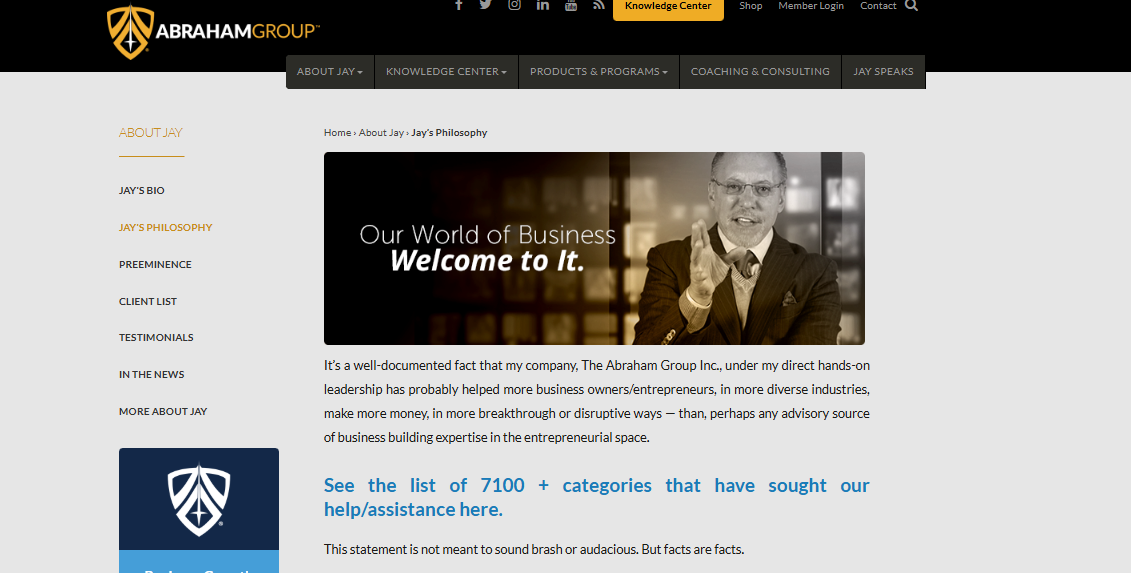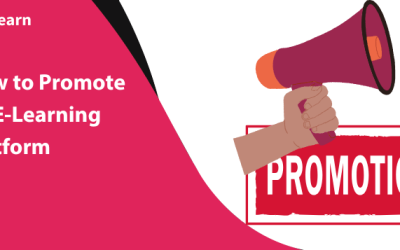How to Become a Business Coach: A Quick Guide
Do you have what it takes to be an online business coach? Whether it is increasing your client’s sales, minimizing business expenses, or formulating a business growth plan, becoming a business coach is an incredibly rewarding niche. Who knows, you might even be the next management consultant advocating an amazing strategic vision to Tim Cook or Dough McMillon!
Business coaching is a lucrative coaching niche that has existed for decades. With the slew of startups storming into the market every other day, you won’t face any dearth of clients. All you need is to discover the skills and experiences you possess to build a successful coaching business!
Do you want to know more on how to become a business coach? Here are practical insights and detailed steps to becoming a six-figure business coach!
What Does a Business Coach Do?
Business coaches are professionals or executives who guide startups, entrepreneurs, or business owners to grow their businesses. They could be consultants, accountability partners, or even motivational speakers. While consultants offer solutions or advice, a business coach employs a collaborative approach to guide you through self-discovery with an actionable plan.
So, what does a business coach do? Their primary goal is to help business owners and entrepreneurs establish successful businesses.
Here’s how a business coach helps to achieve the business goals:
- Assess the client’s strengths and weaknesses and help in overall development
- Formulate a business strategy to achieve a specific goal
- Offer motivation and support and develop a growth mindset
- Set clear goals and plans and track the progress of these actionable plans
- Increase the business revenue or profits
- Build a resilient team and solve operational bottlenecks
- Monitor the business’s performance and help them to scale the business.
- Produce new business ideas or detailed roadmaps for growth
- Structure or systems for smooth business operations
- Identify the blindspots in your business
How to Become an Online Business Coach?
Business coaching is a $14.1 billion industry, thanks to the inflation wave, great resignation and a growing number of SMEs. Moreover, one in six medium-sized companies seek out help from business coaches. So, if you’re an aspiring business coach, it is the perfect narrative to take advantage of!
Here’s an 8-step strategy on how to become a business coach:
Step 1: Choose a Profitable Niche
The first step to becoming a successful business coach is to identify what type of business coach you want to be. There are several business coaches out there pitching their coaching programs. So, is there a way you can stand out from this crowded marketplace?
A well-defined niche can help you excel in your chosen sphere of influence!
Choosing a niche is essential for your business’s long-term success! It becomes easier to define your ideal client, find the relevant marketing platform, refine your coaching package, etc.
So, how do you discover the right niche for your coaching business?
Ask yourself: what do you feel most excited about while working with your clients? Because only with passion can you focus your efforts in the right direction.
Next, reflect on your personal and professional achievements. A specific skill or knowledge you possess that could help your clients to reach their business goals. For example, Tyler Archer has 15 years of sales experience, he is a sales & business coach who leverages his decade long sales experience. Tyler helps businesses to convert leads and grow their businesses.

Tyler Archer is a business coach who specializes in sales conversion.
A few common business coaching niches are:
- Leadership Coaching
- Business coaching for small entrepreneurs, startups, female entrepreneurs
- Branding expert & business coaching
- Business coach in a specific domain like beauty brands, ecommerce businesses, etc.
- Team Coaching
Step 2: Getting Certified
Once you determine your ideal niche, you need a base to start with your coaching business! A certification or course might provide the foundation to start as a business coach. For example, it might help you discover the right frameworks and coaching methodology.
Of course, you can become a business coach without a degree or certification in business coaching. Instead, you can focus on gaining practical experience and developing your coaching style through actual coaching!
However, a certification helps you win your client’s trust and credibility!
Here are the popular business coaching certifications:
- Leadership Coaching by Harvard University
- Leadership and Performance Coaching Certification by Brown University
- Business Coach Certification by the University of Houston
- Co-Active Training Institute
- Center for Executive Coaching
- Executive Coaching Certification by iPEC (Institute for Professional Excellence in Coaching)
Step 3: Identify Your Ideal Client
Do you want to work with your dream client or just anyone? So, once you find your ideal niche, it’s time to find who you’re excited to work with! Knowing your clients helps to craft an irresistible coaching program for your target audience!
The best way to find your dream client is to create a detailed persona with these questions:
- What does your ideal client look like?
- What kind of problems and challenges do they endure?
- What do they typically do throughout the day?
- Which social media platforms do they ideally like to hang out on?
- Which characteristics do they possess? (E.g., age, demographics, gender, location)
- What kind of business do they own? (E.g., industry, market size, niche, no.of employees)
Remember, you might be unable to create your ideal client profile in the first shot. But you can always tweak and refine the client persona over time!
🗒️Pro Tip: Here’s an amazing exercise you can follow as a business coach. Create the Dream 100 List: List down all your top dream clients/ companies you would love working with.
Step 4: Establish Your Coaching Practice
To start your coaching business, you need to register its name. Your name must be easily identifiable and reflect your services. Further, you need to decide whether you wish to operate as a sole proprietorship or an LLC(Limited Liability Corporation).
Typically, it is recommended to operate as an LLC, considering its simple structure compared to partnerships. Furthermore, if you need legal rights to operate your business, you need to apply for a business license.
Step 5: Build Your Coaching Offer
Now that you have established your coaching practice, it’s time to craft your first coaching program! Every business coach has a unique style; discover your USP. Defining targeted buyer personas helps to discover their pain points and create a compelling coaching offer!
Simply put, your coaching package is your coaching outcome, methodology, and additional tools and resources altogether.
This is one of the essential steps in this how to become a business coach guide. For easier understanding, we have divided the process into 4-step processes:
Define Your Outcome
Start by defining a clear coaching outcome for your business coaching packages. These goals must be specific, measurable and result-oriented. The outcome could relate to growing a client’s skills, performance, knowledge, attitude, etc. However, it should also contribute to the overall vision of the company.
For example, increasing team performance by 30%, improving the sales pitch, driving leads into paying clients, and 20% revenue growth over the next two years. The five prominent focus areas of business coaching are leadership, team and culture, finance and marketing, and efficiency, system, and operations.

Robin Waite’s Fearless Business Accelerator Program defines a clear outcome: increase your revenue by 40-200% in 5-6 months.
Structuring Your Package(Duration, Frequency, Session length)
Structuring your coaching package streamlines your services and defines a clear roadmap for them. Thus, you can efficiently deliver your coaching packages.
Multiple aspects are involved here: duration, frequency, and session length. Ideally, you can plan your coaching program for 3 to 6 months. Decide the duration based on the complexity of your goals, client preferences, and ROI goals.
Further, you can start with a 1:1 coaching session and later move on to group sessions.
Outline Your Coaching Package
What kind of coaching methodologies to include in your coaching package? You can either create your own methodology from the foundation and practical experience. If you find it overwhelming to create your own methodology, you can borrow someone else’s. Popular coaching models are GROW, COACH, and STAR.
For example, you can start with a two-hour initial assessment and evaluate your client’s current situation. Here, you will understand your client’s goals, pain points and challenges. This might include reviewing extensive business audits or revenue statements.
Next, you can schedule bi-weekly coaching sessions on the specific focus area and deliverables. Your program must also include monthly check-ins and progress evaluations.
Important: Do you need a customized business coaching program? Download our sample 12-week coaching template.
Additional Resources and Tools
An extra bonus support would go a long way toward giving you an edge over your competitors. You can offer weekly email support to address relevant questions and a personalized marketing or budget plan in the inbox! Even a compelling social media strategy or a team coaching session could be insightful!
Step 6: Decide Your Coaching Prices
Your coaching prices reflect the value and expertise you offer to your clients.
However, apart from these, there are certain intangible aspects, like the time and research you put forth!
You can start out with a signature package and then move on to a tiered pricing model: starter, growth, transformation or VIP coaching packages.
While 1:1 coaching offers personalized coaching, group coaching is a scalable model for earning additional income. Other coaching models are subscriptions, one-time payments, and performance bonuses.
Step 7: Create Your Personal Brand
“A brand is a person’s gut feeling about a product, service, or company.” At least, that’s what American author and speaker Marty Neumeier thinks! While we often misinterpret branding as a logo, name, or color scheme, it extends beyond that!
In fact, your brand is your reputation! It is essentially defined by your target audience, referral partners, and, most importantly, your clients!
Your brand personality, values and promise also define your branding.
Step beyond and define the following aspects of your business:
-
Niche
Your niche is who you want to coach and the area of focus of your coaching offerings.
-
Mission Statement
It is the purpose or ultimate value you bring to your clients. This resonates with and builds trust among your audience, and it is also the essence of your business.
-
Unique Value Proposition
This is a unique angle that differentiates your business. It could be your expertise, knowledge, or coaching methodology. Your USP should be deeply ingrained in your branding.
-
Strong Client Relationship
When your clients feel connected with your business, they become your brand ambassadors.
-
Brand Voice and Tone
Your branding message and tone must fit your business goals and coaching style.
Step 8: Promote Your Coaching Business
Now, you have your ideal client profile, an attractive coaching package, and your own personal brand all set for launch! The key question is, how do you get your coaching clients?
That’s why you need to promote your package across all the right marketing channels. You might have found the marketing channels where your ideal clients typically hang out.
Here are the relevant marketing channels to build your client base:
- Use word-of-mouth marketing and referrals to market within your existing network.
- To expand your network, attend in-person or virtual industry events and networking conferences. Even local meetups are great for discovering new clients and gaining feedback.
- Offer free workshops or volunteer while starting out and gain practical experience.
- Collaborate with accountants, the Chamber of Commerce, and other relevant business groups to increase your reach.
- Promote your coaching package across social media channels like LinkedIn, X, and TikTok.
- Create a YouTube channel and post niche-relevant content to attract organic traffic.
- Start your own podcast channel or interview on popular podcast channels relevant to your niche.
- Curate newsletters and blogs to share your valuable expertise with your target audience.
🗒️Pro Tip: Top business coaches recommend using software and presentations to make an impact on your business clients.
Step 9: Scale Your Coaching Business
Now that you have established your coaching business and earned your initial set of clients. It’s time to scale your business! So, if you currently earn from 1:1 coaching sessions, you can diversify to group coaching sessions.
Further, you could sell a course or digital product like an ebook, guide or template. You can even offer memberships or create an online community based on business coaching.
While we have answered your question, “How do I become a business coach?” Now that you have the basic framework to get started, we shed light on the challenges, skills, and practical insights that could shape your coaching journey!
What are the Challenges and Risks that a Business Endures While Starting Out?
While many business coaches are building their coaching empires, coaches face significant challenges when starting out!
Becoming aware of these hurdles helps you strategize your business plan:
-
Struggling to Find a Consistent Client Base
Whether you are just starting out or hit a specific milestone, client acquisition is a persistent challenge! Moreover, you need to master the art of finding the right clients and fostering long-lasting relationships.
-
Balancing the Administrative and Coaching Tasks
Juggling myriad responsibilities, such as conducting coaching sessions and planning and strategizing for upcoming sessions, can get overwhelming. Hence, coaches must manage the tasks and create a planned schedule effectively.
-
Building Credibility as a Business Coach
Even new business coaches are grappling with the “catch-22” dilemma. Business coaches need professional experience to get paying clients, but they can gain practical experience only from actual clients. So, they are stuck in a ceaseless rut!
-
Evolving and Adapting to the Ever-Evolving Business World
Today, all industries are evolving at a lightning pace, and market dynamics are ever-changing. So, adapting and keeping up with all the niche trends is more important than ever for coaches!
Effective Tips to Build a Successful Coaching Business
The difference between a good and great coach is implementing the right strategies & steps:
- Be acquainted with the fundamentals of coaching skills & coaching competencies.
- An effective coach-consultant transfers coaching skills to their clients, helping them to be better coaches for their organization. Your clients can learn how to perceive problems, the art of asking meaningful questions, and how to reach their outcomes.
- Use playbooks to capture your steps, actionable plans and strategies, which will help you measure the success of your coaching practices.
- Train your clients to implement coaching strategies the right way to get accurate results.
- Planning to reach a 6-figure income as a business coach? Master all the 4 focus areas of business owners: make more money, make more impact, work a few hours, and build an effective team.
- Unlike consulting, coaching is more about asking powerful questions rather than offering solutions.
🗒️Pro Tip: Looking to expand your business coaching skills? Gain deep insights for these books suggested by leadingcoach Ajit Nawalkha:
-
-
- Profit First By Mike Michalowicz
- The Five Dysfunctions of a Team by Patrick Lencioni
- Vivid Vision By Cameron Harold
- Mastering the Rockefeller Habits by Verne Harnish
-
Leading coach Ajit Nawalkha recommends 4-key elements to start your coaching journey as a business coach.
What are the Skills & Qualities for Becoming a Business Coach?
“Success leaves clues!”
Tony Robbins’s famous quote reminds us that successful people follow certain habits, strategies and principles that define their success. By following these common threads, you can also attain similar success!
This is essentially called a growth mindset. And inculcating a similar mindset can help you become a successful business coach.
Now, let’s take a look into the psyche of business coaches:
- Curiosity & life-long learner
- Active Listening Skills
- Strong Communication Skills
- Self-awareness
- Accountability
- Deep Passion for Business
- Self-belief & Service- Oriented
- Willingness to follow the plan
- Networking Skills
These skills help you to become a better business coach.
How Much Business Coaches Make?
Now that you know what it takes to build a successful career as a business coach, let’s gauge the earnings aspect. Considering the high demand and huge market size, business coaching is a lucrative career. There are different types of business coaching. If you’re into executive coaching and offer C-level executives advice, you can make a fortune from your coaching business.
According to ZipRecruiter, the average annual earnings of a business coach are approximately $84,190. Top-earning coaches make around $1,42,000 annually, depending on several factors. The total earnings of business coaches depend on factors such as niche, coaching services, expertise, and how much your target audience is willing to pay.
Successful Business Coaches to Get Inspired From
Need some spellbound strategies and practical insights? A deeper insight into the business coaching empire of these OGs could scale your coaching trajectory!
Tony Robbins
If you are in the coaching realm and aren’t familiar with Tony Robbins, you’re leaving under the rock! A multi-hyphenate who has mastered diverse roles as a business coach, author, and motivational speaker, Tony Robbins needs no introduction!
Robbins is known for his high-energy seminars, personal coaching sessions and neuro-linguistic programming technique(NLP). Some of his famous seminars include Business Mastery, Leadership Academy, and Unleash Your Power Within. These have revolutionized thousands of lives! Further, he has authored several best-selling self-help books that have inspire many people worldwide over the years.

Tony Robbins is one of the top life and business strategists and best-selling author.
Marshall Goldsmith
With 40 years of experience as a leadership and executive coach, Marshall Goldsmith is a pioneer in leadership coaching and education. He is essentially known for his popular stakeholder-centered coaching approach, which considers feedback from stakeholders and colleagues to improve performance.
He is also a regular speaker at top motivational conferences and events. He champions positive and long-term behavioral change. The majority of Goldsmith’s clients are among the top 500 Fortune companies, leading CEOs and executives. 100 Coaches is another venture by Goldsmith and an executive coaching firm that matches coaches with the world’s best leaders.

Marshall Goldsmith is a thought leader, author, and executive coach renowned for 360-degree feedback.
Jay Abraham
Jay Abraham is a world-class business expert and renowned business consultant who has worked across 1000 industries, sharing his gospel on business strategy. He has spent his multi-decade career solving complex problems and transforming underperforming businesses, so he has virtually dealt with every scenario in the business world.
His USP lies in looking into situations from a different perspective and taking the road less traveled. Jay’s coaching pathways advocate includes underutilized opportunities, partnerships, and assets.
Some of his popular coaching methods include the strategy of preeminence, risk reversal, exponential growth, and also the “What’s in it for Them mindset.”

Jay Abraham’s coaching methodology includes Relational Capital, Prominence, Leverage Marketing, etc.
Final Thoughts
Business coaching is indeed an empowering career to pursue! If you’re an aspiring business coach, we hope that our two cents on how to become a business coach will help you take your business to the next level!
Coaching is a great field if you’re shifting gears and wish to continue in the same field! To establish a successful business coach, you need a well-defined niche, a clear business plan and a targeted coaching package.
Are you ready to envision magic and empower businesses along this competitive market narrative?
FAQ-Related to How to Become a Business Coach
1. What is required to be a business coach?
To become a business coach, you need knowledge of how to run a business, relevant industry experience, coaching and communication skills. Certification isn’t essential, but it would boost your credibility for becoming a business coach.
2. Can you become a business coach without any experience or certification?
Yes, business coaching is typically an unregulated industry. Yes, you can become a business coach without any valid certification or past coaching experience. But you need sufficient industry expertise and deep passion to scale your business.
3. How do I start my online business coaching?
First, choose a profitable business coaching niche, identify your ideal client, gain relevant certification, build your coaching offer, find coaching clients, and scale your coaching business.
4. Is business coaching profitable?
Business coaching is indeed a rewarding coaching niche to pursue. According to Zip Recruiter, business coaches earn an average of $84,190 annually, while top earners earn over $133,000 annually. Overall earnings depend on niche, expertise, location, target audience, and coaching services.





